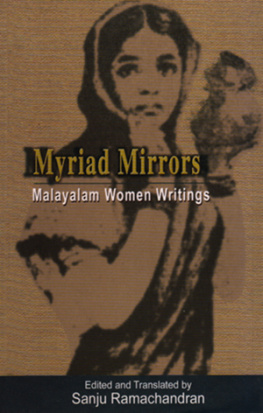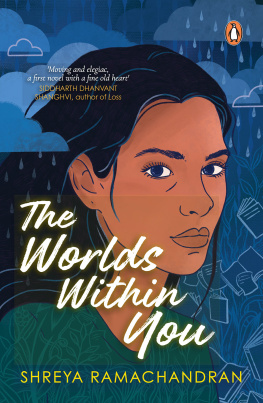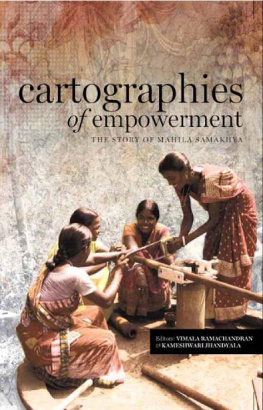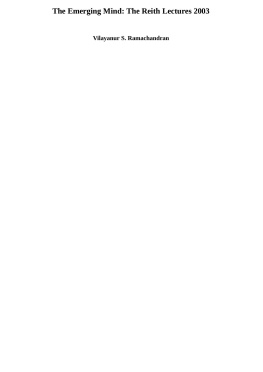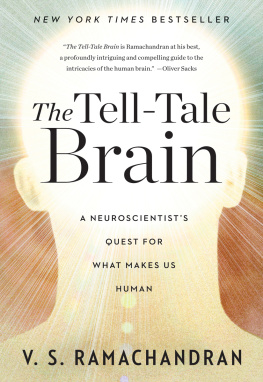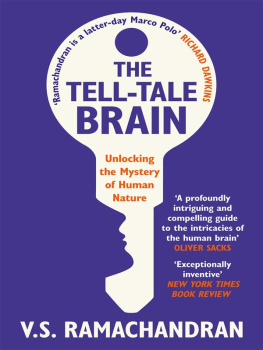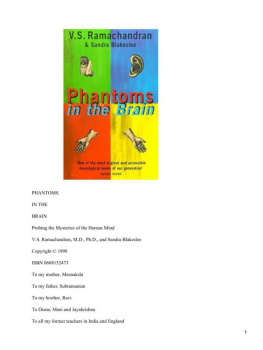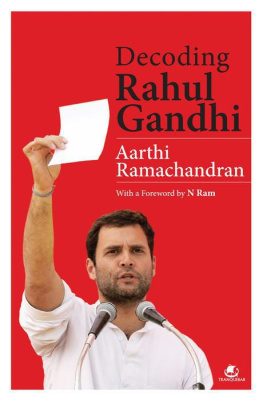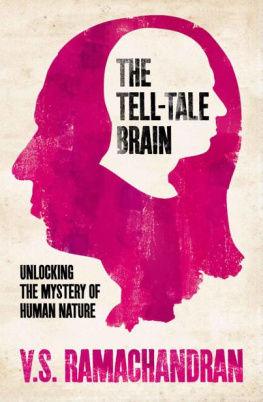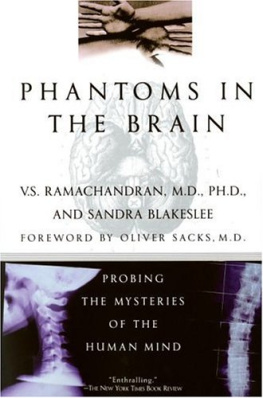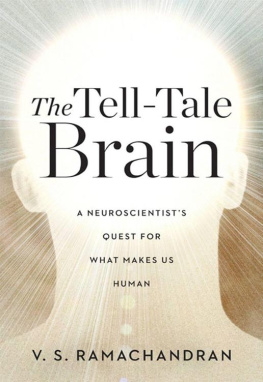Sanju Ramachandran - Myriad Mirrors
Here you can read online Sanju Ramachandran - Myriad Mirrors full text of the book (entire story) in english for free. Download pdf and epub, get meaning, cover and reviews about this ebook. year: 2003, publisher: Srishti Publ., genre: Detective and thriller. Description of the work, (preface) as well as reviews are available. Best literature library LitArk.com created for fans of good reading and offers a wide selection of genres:
Romance novel
Science fiction
Adventure
Detective
Science
History
Home and family
Prose
Art
Politics
Computer
Non-fiction
Religion
Business
Children
Humor
Choose a favorite category and find really read worthwhile books. Enjoy immersion in the world of imagination, feel the emotions of the characters or learn something new for yourself, make an fascinating discovery.
- Book:Myriad Mirrors
- Author:
- Publisher:Srishti Publ.
- Genre:
- Year:2003
- Rating:4 / 5
- Favourites:Add to favourites
- Your mark:
- 80
- 1
- 2
- 3
- 4
- 5
Myriad Mirrors: summary, description and annotation
We offer to read an annotation, description, summary or preface (depends on what the author of the book "Myriad Mirrors" wrote himself). If you haven't found the necessary information about the book — write in the comments, we will try to find it.
Myriad Mirrors — read online for free the complete book (whole text) full work
Below is the text of the book, divided by pages. System saving the place of the last page read, allows you to conveniently read the book "Myriad Mirrors" online for free, without having to search again every time where you left off. Put a bookmark, and you can go to the page where you finished reading at any time.
Font size:
Interval:
Bookmark:

Myriad Mirrors
Myriad Mirrors
Malayalam Women Writings
Edited and Translated
by Sanju Ramachandran

Srishti
P UBLISHERS & D ISTRIBUTORS
S RISHTI P UBLISHERS & D ISTRIBUTORS
64-A, Adhchini
Sri Aurobindo Marg
New Delhi 110 017
Copyright for each individual story in its original language is held by the authors.
Copyright for the English translations: Srishti Publishers & Distributors in 2003
ISBN 81-88575-04-6
Rs. 145.00
Cover design: Vinayak Bhattacharya
Typeset in AGaramond ll.pt. by Slcumar at Srishti
Printed and bound in India by
Saurabh Print-O-Pack, Noida
All rights reserved. No part of this publication may
be reproduced, stored in a retrieval system, or transmitted,
in any form or by any means, electronic, mechanical,
photocopying, recording or otherwise,
without the prior written permission of the Publishers.
To Amma
Contents
Italo Calvino in Thrissur Expressr
GitaHiranyan
What mother ought to know
Gracy
The Summons from God
Sithara S
The Perfect Wife
K. Saraswathi Amma
Smell Of a Bird
Madhavikutty
Madness
BM Suhra
Maanikkan
Lalithambika Antharjanam
Peoples Court
Chandramathi
A World Without Dushyanta and Bhima
P. Vatsala
Matrimony
Sarah Joseph
Black Spots
Ashita
The Lost World
Rajalakshmi
Editors Note
All cultures have their ways of telling stories. The short story is the strongest of all literary genres of Malayalam. Its form and substance have constantly evolved, the sculpting hands holding the chisel never wearing out, with at least one master even denying the novel all together. The first Malayalam short story was written more than a century ago and since then it has become the most popular form of story telling.
In a state with the highest literacy rate and female to male ratio, women auto rickshaw drivers and petrol pump attendants are commonplace. Women hold high offices, lead protest marches in the scorching sun, sell tickets to travelers in transport buses. But, there are no women bar tenders or revelers in a land crazy after booze. No woman can be seen smoking in public anywhere in Kerala.
Predictably Malayalam women writers have a lot to say. The earliest among them, Lalithambika Antharjanam wrote about the cloistered life of Brahmin women and their woes at home, but was also sensitive to the societal caste inequities. A host of others followed giving voices to the old and new traumas in a world that gave liberty to learn, to step out of her house, but thwarted her individuality and attempts at spiritual realization. Her many revolts within and without the house were derided casually as, feminism, which obviously lost its meaning.
In Kerala, it is nobodys case that a mans world is wider than a womans. But a woman is made to account for her characters and images at home, office or in the neighbourhood. There is still a search for one-to-one correlation in stories of unhappy marriages and sexual escapades with the woman authors life. The most promising of them all, Rajalakshmi committed suicide when she could not take it any longer. Antharjanam was put on the pedestal of Amma or mother and hence was spared all barbs and innuendoes. SaraswathiAmma chose to be single and not write for the last 16 years of her life. Madhavilkutty or Kamala Suraiyya braved it all, in her writing as well as life. No wonder she became an icon for women aspiring to be themselves.
Most of the women writers featured in this anthology had or still have an independent career and, another full time job of a homemaker.
The term pennezhuthu (womens writing) does help to group together and promote writings by women. But many women writers feel they would be better off without any affirmative action. Kamala Suraiyya has once pointed this out in her inimitable style: There are certain parts of the human body that differentiate a woman from a man. But a woman doesnt write with any of those. Of course, a womans world is different, her sensibilities, priorities and perceptions are different. But then, every woman is different from another. As men do, women too respond to lifes crises in separate ways, their experiences too are varied.
This anthology reflects the myriad ways in which women writers express themselves; these are the mirrors they hold to themselves and the world they live in. I have tried to make this book an assorted collection of stories, selecting those varied in style and substance. There are no underlying themes because they are meant to be different to capture the widest array of reflections possible between Antharjanam and Sithara, these writers were born within a time scale of three quarters of a century.
Translating these stories has not been easy. Some of them are short and seemingly simple, but multi-layered. Some are splattered with local dialects that give them a distinct character. Getting all these nuances right in translation is next to impossible, is my only consolation.
Many friends and well-wishers have made my job easier. I owe this book to all the authors who have given their consent, the relatives of writers who hold the copyright, D.C Books, Kottayam, its manager G. Sreekumar, Abu Faizi, Sarita Varma and others who helped me obtain permission to compile these stories. I remember with special gratitude the efforts of Sarojini Kurup.
Women Writers of Malayalam edited by Dr. Sridevi K. Nair and 100 years 100 Stories (both published by D.C. Books) have been ready reckoners.
My two little girls have put up with my long absences from their midst and I thank Swapna for suffering their tantrums on my behalf. Rajasekhar Vundru, the dear friend, got the computer salvaged and hence the book. Thanks to, K. Sankaranarayanan, Manini Chatterjee, Manjippi and Ajaz Ashraf for their invaluable suggestions. Special thanks to cartoonist and Malayalam writer Bonny Thomas who happily volunteered to do the illustrations.
No words can express what I owe Rajesh, the driving force behind this book. I am grateful to Papa and Mamma, for being the indulgent parents they are, never interfering, never domineering. Thinking of it, everything goes back to them, reading, writing et al.
Above all I thank Amma, the most amazing human being I have ever met in my life. She is a person who sustained lives with her power of tolerance and strength of spirit. I thank her for the loads of couriers I received, for the innumerable phone calls she made, for her endearing words of encouragement and love, for her unfailing support all the time. I dedicate this book to her as a token of my gratitude for all that she has been to me these eleven years.
Sanju Ramachandran
Italo Calvino in Thrissur Express
Italo Calvino Thrissur Expressil
By Gita Hiranyan
T he he woman got in from a bus stop where dragonflies flew down to rest on electric lines. Ajay Maneri remembered that precisely. And there was a reason for this sharp recollection. He felt the flight of the dragonflies would make an ideal opening shot for his movie.
Now dont jump to conclude that Ajay Maneri is a movie director. For now, he is a mere would-be director. A flash back of his story runs like this.
Ajay Maneri 39 years. No one would term him dark complexioned. He tried his best to hide his creeping baldness, combing up to the front some hair from just above the left ear. He stooped a bit, just the way those aware of their height would do, had a nonplussed expression and a face that was okay to look at. Did he spend his own money to drink? No, because there wasnt any.
Next pageFont size:
Interval:
Bookmark:
Similar books «Myriad Mirrors»
Look at similar books to Myriad Mirrors. We have selected literature similar in name and meaning in the hope of providing readers with more options to find new, interesting, not yet read works.
Discussion, reviews of the book Myriad Mirrors and just readers' own opinions. Leave your comments, write what you think about the work, its meaning or the main characters. Specify what exactly you liked and what you didn't like, and why you think so.

